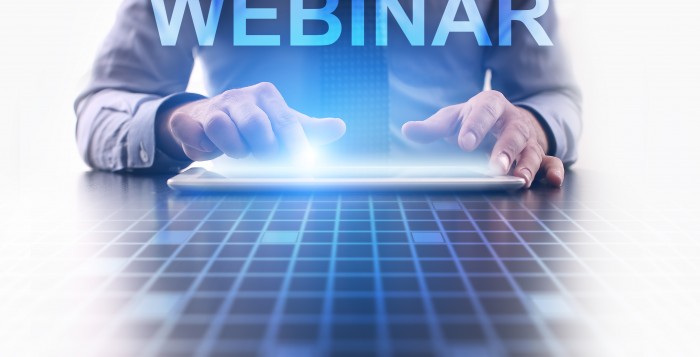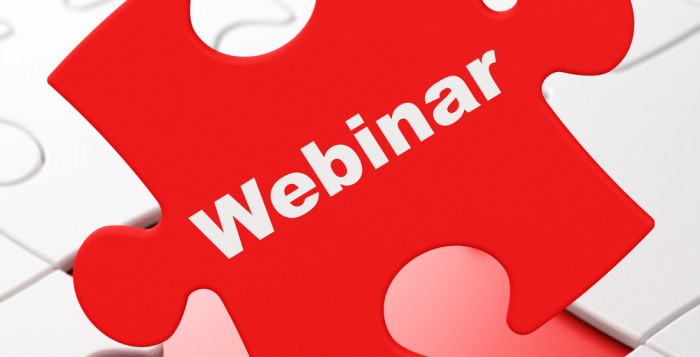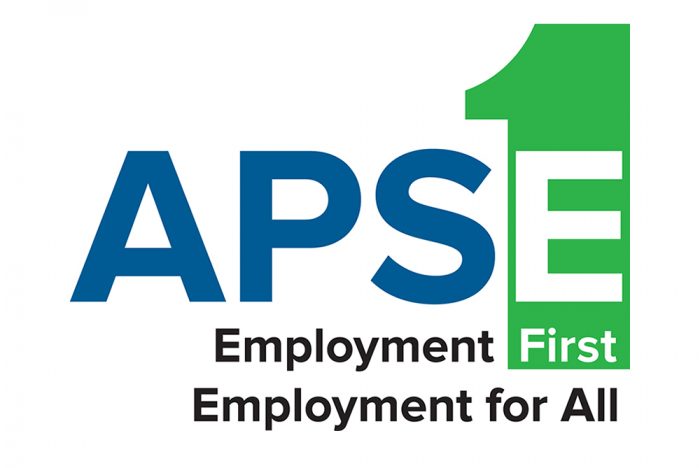Carol Ferenz
Employment First Community of Practice Webinar: Value, Outcome and Performance-Based Payments
The Employment First Community of Practice webinar on “Value, Outcome and Performance-Based Payment Methodologies to Advance Competitive Integrated Employment in State Medicaid Long-Term Services and Supports (LTSS) Systems and Managed Care LTSS Systems” is available for viewing in the archives. The webinar presents examples of state Medicaid LTSS systems, some that are using managed care and some that are not, that have designed and implemented value-based purchasing and outcome-based reimbursement methods to advance Employment First and Competitive Integrated Employment.
Visit here to view “Value, Outcome and Performance-Based Payment Methodologies to Advance Competitive Integrated Employment in State Medicaid Long-Term Services and Supports (LTSS) Systems and Managed Care LTSS Systems.”
Save The Date — Risk Management Forum 07-29-2021
Illuminate — 2021 APSE Virtual Conference Schedule
CMS Guidance to States Summary: 10% FMAP
From ANCOR:
Happy Friday, ANCOR Members! Two months after President Biden signed the American Rescue Plan into law, CMS finally released its guidance to states on the 10% FMAP bump dedicated to HCBS. We are still analyzing it carefully, but initially it appears that stakeholder input was carefully considered. Of immediate significance:
- CMS is permitting states an additional three 30 day episodes of retainer payments. We advocated long and hard for that, so this is a major win!
- Time frame for states to spend the additional FMAP funds was extended through March 31, 2024;
- States must maintain HCBS provider payments at a rate no less than those in place as of 4/1/21;
- Gives specific examples re states which implemented temporary changes through the Appendix K template and how they are expected to retain those changes;
- Specific examples re supplementing vs. supplanting;
- Allowable uses include:
- Payment rates with the expectation of providers to increase compensation, leave benefits, specialized payments, etc.
- PPE & Testing Supplies
- Activities to recruit and retain DSPs, including incentive payments, training specific to the pandemic
- Support for family caregivers, including PPE and payment as a service provider
- Assistive Technology, including internet activation costs, staffing ,etc.
- Transition Support
Below is an overall summary of the full guidance:
Since the beginning of the pandemic, ANCOR alongside our disability partners has worked tirelessly to address those needs – finding new ways to deliver services and increase capacity, ensuring the needs of people with disabilities have been considered at every step of the COVID-19 response, and ensuring that the magnitude of the needs are understood.
As a result of that advocacy, the American Rescue Plan Act of 2021 (ARP) included several provisions to help address these unmet needs. One of them is a temporary, but significant, increase in federal funding for home and community-based services (HCBS). Specifically, states can receive a 10 percentage-point increase to the federal medical assistance percentage (FMAP) they receive for certain Medicaid expenditures for HCBS. This “FMAP bump” is available for one year, from April 1, 2021 to March 31, 2022.
In a letter to State Medicaid Directors issued Thursday, the Centers for Medicare & Medicaid Services (CMS) provided states with guidance for receiving the funding. The letter provides more precise details, but services and activities can be provided through a variety of different Medicaid HCBS programs, and a wide variety of services and supports that both older adults and people with disabilities rely upon are eligible. For example, states can claim additional federal funds for:
- HCBS waiver services
- Home health services
- Private duty nursing
- Personal care services
- Self-directed personal care services
- Case management
- School-based services
- Rehabilitative services
- Program of All Inclusive Care for the Elderly (PACE)
Additional funding also can be used for a range of activities that help increase community living options. The following are just a few of the many examples described in CMS’ letter:
- Adding new HCBS services.
- Providing more of the same services to people who already receive them. For example, providing additional hours of personal care services.
- Providing services to individuals on HCBS waiting lists.
- Providing services that help people avoid institutionalization, or that help them return to the community from institutions.
- Supporting the direct care workforce through increased pay or benefits, recruitment and training activities, or expanding self-directed programs.
- Providing supports for family caregivers, including training and respite services.
- Providing assistive technology for people with disabilities, including internet activation costs.
- Assisting with access to COVID-19 vaccines, including scheduling appointments, transportation and in-home vaccination.
- Providing personal protective equipment.
- Expanding provider capacity for mental health and substance use disorders, as well as expanded rehabilitation services.
- Quality improvement activities.
- Some No Wrong Door functions, such as developing informational websites, automating screening and assessment tools, and conducting marketing and outreach campaigns.
(Note that services paid for through administrative match, such as those offered through the Long-Term Care Ombudsman program and certain No Wrong Door program activities, are not eligible.)
An important condition for receiving this funding is that states cannot decrease their own funding of HBCS. In other words, states cannot use the additional federal funding instead of state funds; the funds must be used in addition to the state’s own investments. They also may not cut HCBS services during this time. That means states may not eliminate covered services or reduce the amount, duration or scope of those services. In addition, they may not impose stricter eligibility requirements for HCBS programs and services than were in place on April 1, 2021 or reduce provider payments.
***States can contact HCBSincreasedFMAP@cms.hhs.gov if they have questions about the services which can claim the increased FMAP.
——————————
Shannon McCracken
Vice President of Government Relations
ANCOR
606-271-3555
——————————
Finance and Reimbursement Committee Meeting Materials
The recording of the Finance and Reimbursement Committee meeting is available on the members only section of RCPA’s website, which is accessible here. The PowerPoint from the April 2021 Mercer/ODP webinar regarding Intermediate Care Facilities for Individuals with Intellectual Disabilities (ICF/ID) budgets is available here.
For more information about the Employee Tax Credit program and Synergi, follow this link to the Synergi Partners RCPA landing page. You can also reach out directly to Jeff Walker or Clint Foster.
CMS Releases Guidance for Implementation of the American Rescue Plan
Today CMS released guidance to the State Medicaid Directors regarding the 10% increased Federal Medicaid Assistance Percentage (FMAP) for certain Medicaid expenditures for Home and Community-Based Waiver Services (HCBS). States must use the funds to supplement and not supplant state funds expended for HCBS Waiver Services in effect as of April 1, 2021, and states must use state funds equivalent to the amount of federal funds attributable to the increased FMAP to implement or supplement the implementation of one or more activities to enhance, expand, or strengthen HCBS under the Medicaid program.
The purpose of this letter is to provide guidance to states on the implementation of section 9817 of the American Rescue Plan (ARP), as well as to describe opportunities for states to strengthen the HCBS system in response to the COVID-19 Public Health Emergency (PHE), increase access to HCBS for Medicaid beneficiaries, adequately protect the HCBS workforce, safeguard financial stability for HCBS providers, and accelerate long-term services and supports (LTSS) reform under section 9817 of the ARP.
This increased federal funding can help states increase community living options for people with disabilities, in accordance with Title II of the Americans with Disabilities Act, 42 U.S.C. §§ 12131–12134, as interpreted by the Supreme Court in Olmstead v. L.C., 527 U.S. 581 (1999), which requires public entities to administer services to individuals with disabilities in the most integrated setting appropriate to their needs.
In addition, this letter updates Medicaid retainer payment policy for HCBS providers during the COVID-19 PHE.
The letter outlines additional guidance.
Recruiting and Ghosting Workshop — One Week Away
Time is running out to register for the May 20, 2021 workshop. One of the speakers, Scott de Fasselle sends this message.
We are offering two workshops to provide you with tools to improve your success in finding and keeping the right DSPs for your agency. These workshops should be attended by HR directors, supervisors, and anyone involved in recruiting and hiring. Attendees will leave with simple tools they can use immediately. During these workshops, attendees will collaborate with their peers and leave feeling empowered. All participants in these workshops will leave with a workbook and clear next steps to take back to their organizations to implement what they have learned. Note that you do NOT need any new consultants or software.
Cost — RCPA Members: $99 per session. Non-members: $125 per session.
Recruiting and Ghosting: Thursday, May 20, 2021 9:00 am–12:30 pm
Recruiting and Ghosting: You will learn free approaches to writing a job post to attract more applicants and fix common problems in your online application that drive applicants away, as well as a fast approach to prevent people that no-call / no-show for interviews. You can register for this event here.
Retention and Culture: Tuesday, June 8, 2021 9:00 am–12:30 pm
Retention and Culture: You will learn how to overcome two big challenges that cause new DSP turnover and how to nurture your culture when you do not have enough time. Learn clear and fast steps to an improved onboarding / training experience so new employees are more likely to stay. You can register for this event here.
Space is limited, so do not delay in registering! For any questions, please contact Carol Ferenz, Director, IDD Division.
SCO Subcommittee Meeting Date Change

The June meeting of the IDD SCO Subcommittee is in conflict with one of the Office of Developmental Programs (ODP) Everyday Lives Conferences; therefore, we are rescheduling the meeting to another date. We will now hold the meeting on Thursday, June 17, 2021 from 12:30 pm–3:00 pm. You can register for the meeting here. If you have already registered for the meeting, you do not need to register again.
Please send any questions you would like addressed during the meeting or topics you would like to see on the agenda to Carol Ferenz. Thanks.
Smart Homes Made Simple Webinar
Are They Always Listening? How Secure is My Smart Speaker?
Wednesday, June 2, 2021 from 12:00 pm–12:45 pm
30 minutes of interactive learning, 15 minutes for questions
This presentation will answer questions related to privacy and security with smart speakers such as Amazon Alexa and Google Nest. Attendees will learn:
- How smart speakers work;
- How their security compares to other everyday devices like cell phones;
- How smart speakers “listen” and “understand”;
- What information speakers retain; and
- How you can protect yourself.
Learn more and register here.
This webinar is hosted by Pennsylvania Assistive Technology Foundation (PATF) as part of the Smart Homes Made Simple project. Learn more about the project at SmartHomesMadeSimple.org.
Pennsylvania Assistive Technology Foundation Toll Free Voice 888.744.1938 | Voice 484.674.0506 | Fax 484.674.0510 | Email patf@patf.us | www.patf.us
This project is supported by a grant from the Pennsylvania Developmental Disabilities Council; in part by grant number 1901PASCDD-02 from the U.S. Administration for Community Living (ACL), Department of Health and Human Services, Washington, D.C. 20201. Grantees undertaking projects with government sponsorship are encouraged to express freely their findings and conclusions. Points of view or opinions do not, therefore, necessarily represent official ACL policy.
This session will be fully accessible, and the recording, transcript, and slides will be made available. If you have any questions or need assistance with registering, please contact Susie Daily at 888-744-1938 or by email.















